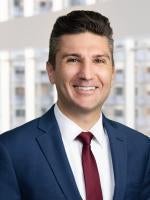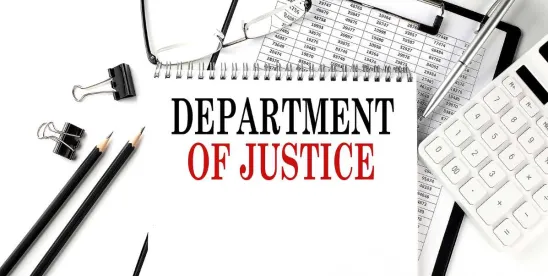On June 27, 2024, the U.S. Department of Justice (“DOJ”) and the U.S. Department of Health and Human Services, Office of Inspector General (“HHS-OIG”), along with other federal and state law enforcement partners, announced the annual National Health Care Fraud Enforcement Action using criminal enforcement to target a wide variety of alleged health care fraud schemes.
What Has Stayed the Same and What Has Changed?
Similar to last year’s all-encompassing “takedown”, this year’s enforcement action charged defendants with schemes related to telemedicine and laboratory fraud; diversion of controlled substances (HIV medications and prescription stimulants); addiction treatment schemes; opioids and other familiar types of health care fraud (such as home health, DME and kickbacks). However, the “headline” this year was a $900 million case in Arizona involving medically unnecessary amniotic wound grafts.
The 2024 enforcement action charged 193 defendants who allegedly have committed over $2.75 billion in fraud. The cases were brought by 32 different U.S. Attorneys’ Offices and 11 State Attorney Generals’ Offices. Although the dollar figure at issue is slightly higher than the 2023 enforcement action, the number of defendants is strikingly higher, with almost two and a half times as many defendants charged. Similarly, the cases were brought in almost twice as many federal districts as last year, suggesting that the Fraud Section is building more partnerships with U.S. Attorney’s Offices nationwide.
Another notable aspect of this year’s announcement, which stands in contrast to previous years, is that the DOJ explicitly acknowledged that the $2.75 billion figure is the “intended losses” but the “actual losses” were only $1.6 billion. As we have previously noted, the DOJ press releases tend to sensationalize the loss amounts of “takedowns,” so it is refreshing to see the DOJ acknowledging the distinction between actual and intended loss.
What has not changed however, is the government’s focus on the seizure, at the time of charging, of cash, bank accounts and other luxury items. This year, the government seized $231 million worth of cash, cars, and gold. At the press conference announcing the enforcement action, Attorney General Merrick B. Garland stated that of the four fundamental principles that guide DOJ’s efforts to combat health care fraud, one such principal is “ensuring full accountability by prosecuting the perpetrators of these crimes and seizing their criminal proceeds”. The Attorney General also drew comparisons between drug cartels and medical professionals in his comments, stating “if you profit from the unlawful distribution of controlled substances, you will be held accountable.”
The real theme behind the “takedown” however is best summed up by Secretary of Homeland Security Alejandro N. Mayorkas’s comment that federal and state agencies “will hold accountable those health care providers and prescribers who prey on their patients for profit and disregard the first rule of medical care: do no harm.”
The breadth and depth of health care fraud has far-reaching effects, from “rais[ing] the cost of care for all patients” to “fuel[ing] addiction” and the DOJ’s Criminal Division is committed to using every tool at its disposal to “uncover misconduct and hold wrongdoers to account, whether they are executive in corner offices of doctors who violate their oaths” according to Principal Deputy Assistant Attorney General Nicole M. Argentieri.
Types of Cases in this Year’s Enforcement Action
Of the numerous cases brought, the government grouped them into six categories:
Amniotic Wound Grafts: What is perhaps the most unique case in this year’s “takedown” is the alleged scheme of four individuals who submitted almost $1 billion in false and fraudulent claims in Medicare for amniotic wound grafts. The scheme targeted vulnerable Medicare patients, including in some instances individuals who were terminally ill. This case is believed to be the first of this nature that has been included in an annual enforcement action. Given the lucrative Medicare reimbursement rates for the products and related procedures, amniotic skin grafts could become an enhanced enforcement area for years to come.
Distribution of Controlled Substances: Five defendants involved with a digital technology company and professional corporation were charged with the unlawful distribution of millions of prescription stimulants (such as Adderall) over the internet. One nurse practitioner was alleged to have prescribed more than 1.5 million pills despite having no interaction with the patients.
Diversion of HIV Medication: Three individuals who were part of a pharmaceutical distributor business were charged with a $90 million wire fraud conspiracy that involved adulterated and misbranded HIV drugs. The defendants allegedly purchased the medications off the black market and sold them to pharmacies using fraudulent documentation.
Addiction Treatment: Four defendants in two district courts were charged with a $146 million scheme that used kickbacks and other methods to recruit vulnerable individuals, such as the homeless, into drug and alcohol treatment programs, even though those services may never have been provided.
Telemedicine and Laboratory Fraud: Thirty-six defendants were charged for “separate cases involving similar schemes” that involved laboratory owners paying kickbacks and bribes to telemedicine companies in exchange for referrals for unnecessary genetic testing, or cases where telemedicine visits with a psychiatrist lasted for less than a minute.
Other Health Care Fraud: As has been the case for most enforcement actions, various other actions were included in the announcement to bolster the government’s numbers, including the prescription of unnecessary opioids and other controlled substances, medically unnecessary testing and services, and fraudulent COVID-19 testing.
An Enforcement Strategy that is Both Static and Dynamic
Since the formation of the Fraud Section’s Health Care Fraud Strike Force in 2007, the prosecution of criminal health care fraud by various federal and state agencies has been both static and dynamic. Static, on the one hand, because DOJ and HHS-OIG continue to pursue the types of health care fraud that are pervasive, e.g., the provision of medically unnecessary services, billing for services not rendered, prescription drug diversion, and telemedicine schemes.
However, it is dynamic, on the other hand, because the Health Care Fraud Unit continues to use its dedicated data analytics team to try to keep its finger on the pulse of possible fraud by monitoring billing trends, and identifying providers who are billing outliers. Indeed, data analytics led to the investigations of the amniotic skin graft, stimulant distribution, and genetic testing schemes outlined above. As AG Garland stated at the press conference, one of the four fundamental principles that guide DOJ’s efforts to combat health care fraud is “using data analytics to keep pace with constantly evolving fraud schemes.” Although health care fraud enforcement is necessarily reactive (and not proactive), DOJ hopes that its increasing use of data analytics will help it break the cycle of “pay and chase”. As HHS Deputy Secretary Andrea Palm stated at the press conference, HHS uses data analytics to try to “stop money from going out the door”. Deputy Secretary Palm’s mention of the use of Artificial Intelligence (AI) in the data analytics realm was notable and a development to watch.
Once the funds leave government coffers, it is very difficult for enforcement agencies to recover them. This is seen by the comparison in this year’s enforcement action of $1.6 billion in alleged actual loss vs. $231 million in seized assets. Stated differently, DOJ only seized 14% of the alleged actual loss figure.
“We are a target-rich environment”
As defense attorneys who practice in this space know, while federal health care fraud enforcement is animated by the pursuit of outliers, it also follows a comprehensive approach that looks at the system as a whole. In leveraging government partnerships, as HHS-OIG Inspector General Christi A. Grimm has stated, the government seeks to “protect taxpayer dollars and keep Americans safe from harms to their health, privacy, and financial well-being.” And as acknowledged by HHS Deputy Secretary Palm, with health care constituting “17% of GDP….we are a target-rich environment”.
As always, we will continue to monitor these annual enforcement actions and other developments in this space.
Chart of Cases Filed in Federal and State Court (Alphabetical by State)
Visit Justice.gov for the cases filed in federal and state court.
| Federal Court | # of Cases | Examples of Allegations |
| Southern District of Alabama (USAO) | 2 | Purchasing and selling Medicare beneficiary identification numbers to bill for COVID-19 testing |
| District of Arizona (Fraud Section) |
6 | Conspiracy, health care fraud, kickbacks and money laundering related to medically unnecessary and improper amniotic skin grafts; provision of fraudulent substance abuse treatment programs |
| Central District of California (Fraud Section) |
2 | Submitting fraudulent claims for medications that were not medically necessary or never provided; billing for dental services that were not provided |
| Northern District of California (Fraud Section) |
4 | Unauthorized distribution of prescription stimulants |
| Southern District of California (USAO) | 3 | Medically unnecessary compound prescriptions; conspiracy to solicit and receive kickbacks related to referrals to substance abuse treatment facilities; telemedicine scheme to provide medically unnecessary durable medical equipment |
| District of Connecticut (USAO) |
1 | Submission of claims for psychotherapy services that were not rendered |
| Middle District of Florida (Fraud Section and USAO) |
8 | Telemedicine scheme to provide medically unnecessary durable medical equipment; paying kickbacks to patient recruiters for home health services and cancer genetic testing; unlawfully obtaining controlled substances; conspiracy to distribute controlled substances |
| Southern District of Florida (Fraud Section and USAO) |
19 | Conspiracy and money laundering related to distribution of durable medical equipment; paying kickbacks to recruiters for therapy referrals; fraudulent provision of health care services and durable medical equipment; telemedicine schemes to provide medically unnecessary genetic testing, COVID-19 testing, or durable medical equipment; diversion of HIV medication; medically unnecessary laboratory testing; selling of patient information; conspiracy to dispense controlled substances |
| Norther District of Illinois (Fraud Section) |
2 | Billing for psychological services that were not provided; fraudulent COVID-19 testing |
| Eastern District of Kentucky (USAO) |
2 | Submission of claims for prescriptions that were never dispensed; unlawful issuance of controlled substances |
| Western District of Kentucky (USAO) |
5 | Medically unnecessary durable medical equipment; theft of controlled substances; illegal use of DEA registration number; fraudulent use of medical practice funds; identity theft |
| Eastern District of Louisiana (Fraud Section) |
3 | Fraudulent COVID-19 testing; billing for medical services that were never provided; falsification of documents |
| Middle District of Louisiana (Fraud Section) |
1 | Fraudulently obtaining controlled substances |
| Western District of Louisiana (Fraud Section) |
1 | Medically unnecessary durable medical equipment |
| Eastern District of Michigan (Fraud Section and USAO) |
9 | Medically unnecessary home health services; billing for psychotherapy services that were not provided; medically unnecessary durable medical equipment; kickbacks to acquire Medicaid beneficiary information and bill for CVOID-19 testing |
| Western District of Michigan (USAO) |
1 | Provision of medically unnecessary medical braces and genetic testing |
| Southern District of Mississippi (Fraud Section) |
1 | Payment of kickbacks for medically unnecessary durable medical equipment |
| District of Montana (USAO) |
1 | Medically unnecessary durable medical equipment and COVID-19 testing |
| District of New Jersey (Fraud Section and USAO) |
9 | Payment of kickbacks and bribes for medically unnecessary laboratory testing; unlawful distribution of controlled substances; diversion of prescription medications; kickbacks related to the submission of claims for medically unnecessary services or services not rendered; kickbacks for durable medical equipment orders and cancer genetic testing |
| Eastern District of New York (Fraud Section and USAO) |
5 | Kickbacks for medically unnecessary prescriptions; billing for diagnostic testing that was not performed; narcotics distribution; kickbacks to induce referrals to pharmacy; billing for undispensed medications |
| Eastern District of North Carolina (USAO) |
1 | Billing for psychotherapy services that were not provided |
| Western District of Oklahoma (USAO) |
2 | Payment of kickbacks for durable medical equipment; impermissible use of SBA funds |
| District of Rhode Island (USAO) |
2 | Billing for services not rendered and increasing level of care |
| Eastern District of Tennessee (USAO) |
4 | False or fraudulent homecare services; billing for skilled nursing services not rendered |
| Middle District of Tennessee (USAO) |
3 | Paying kickbacks for medically unnecessary genetic tests, medications, and durable medical equipment; telemedicine scheme for medically unnecessary prescriptions |
| Eastern District of Texas (USAO) |
1 | Fraudulent COVID-19 testing |
| Northern District of Texas (Fraud Section) |
1 | Kickbacks for patients’ personal health information and medically unnecessary testing |
| Southern District of Texas (Fraud Section and USAO) |
6 | Kickbacks for medically unnecessary genetic testing; kickbacks for prescription referrals; billing for home health services that were not rendered or medically unnecessary; billing for prescriptions that were never filled; billing for dialysis services that were never provided |
| Eastern District of Virginia (USAO) |
1 | Billing for more complex psychiatric services than provided and medically unnecessary services |
| Western District of Virginia (USAO) |
1 | Billing for behavioral therapy that was not provided or not appropriately supervised |
| Southern District of West Virginia (USAO) | 2 | Issuing controlled substances without a medical purpose; obtaining controlled substances by fraud |
| Eastern District of Wisconsin (USAO) |
1 | Billing for staffing that was not provided in adult family homes |
| State Court | # of Cases | Examples of Allegations |
| Arizona | 2 | Paying or receiving kickbacks for patient referrals; improper prescribing practices |
| California | 5 | Billing for behavioral health services not rendered; presenting false or fraudulent Medicaid claims |
| Indiana | 14 | Obtaining controlled substances by fraud; exploitation of endangered adult; billing for personal and companion services not rendered; diversion of controlled substances; criminal recklessness |
| Louisiana | 1 | Medicaid fraud for services not rendered |
| New York | 2 | Kickbacks to create improper transport logs for reimbursement |
| Oklahoma | 1 | Billing for psychotherapy services not rendered |
| Pennsylvania | 2 | Medicaid fraud for services not rendered |
| Puerto Rico | 2 | Billing for dental services not rendered |
| Rhode Island | 2 | Billing for medically unnecessary services, services that were not provided, and other fraudulent billing practices; Medicaid fraud for services not rendered |
| South Dakota | 2 | Medicaid fraud for services not rendered; obtaining controlled substance by fraud |





 />i
/>i

